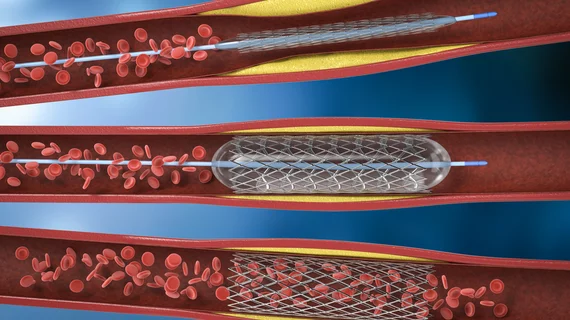Radial vs. femoral access during PCI: Real-world data show proof of a ‘sea change’ in cardiology
Radial access is associated with significantly better in-hospital outcomes than femoral access during percutaneous coronary intervention (PCI), according to new real-world data presented at SCAI 2024 Scientific Sessions, the annual meeting of the Society for Cardiovascular Angiography and Interventions (SCAI).
While femoral arterial access has been the gold standard for PCI procedures for many years, recent randomized controlled trials (RCTs) have suggested interventional cardiologists can achieve better outcomes with radial arterial access. The team behind this retrospective study hoped to learn if real-world data told the same story, exploring in-hospital outcomes associated with from more than 6.6 million PCI procedures performed from 2013 to 2022. All data came from the National Cardiovascular Data Registry’s CathPCI Registry.
During that time, 40.4% of PCI procedures were performed using radial access. Researchers noted that this alternative approach to femoral access has quickly gained momentum among interventional cardiologists. It was used for 20.3% of PCI procedures in 2013, but 57.5% in 2022. This trend was seen in all parts of the United States and across all PCI indications.
Overall, radial access was linked to lower rates of in-hospital mortality, major access site bleeding and other major vascular complications. It was also linked to a slightly higher risk of ischemic stroke, however, a finding heart teams should keep in mind when making treatment decisions.
“The study demonstrates a sea change in the manner in which PCI is performed in the U.S. in response to trial data, but also highlights the continued opportunity for practice improvement with dramatic inter-operator variation,” lead author Reza Fazel, MD, a cardiologist at Beth Israel Deaconess Medical Center, explained. “It confirms that the benefit observed for radial access in RCTs has also been seen in real-world practice, including the largest benefits for the highest-risk patients. Finally, it shows a highly credible novel finding in the increase in stroke risk.”
Click here for additional information about SCAI 2024 Scientific Sessions. Prior Cardiovascular Business coverage is available here.

